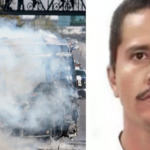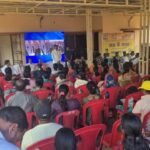Cabinet clears ‘one nation one election’ bill, likely to be introduced in Parliament during winter session
NEW DELHI, SEPT 18: A day after Union Home Minister Amit Shah spoke about ‘one nation one election’, the Union Cabinet on Wednesday cleared the proposal in this regard, which aims to synchronise the elections for the Lok Sabha and state assemblies to a single schedule.
Sources in the government said, the ‘one nation, one election’ Bill is likely to be introduced in the upcoming winter session of Parliament.
The development came after a high-level panel headed by former president Ram Nath Kovind submitted its report before the Union Cabinet on Wednesday.
Home Minister Amit Shah, while speaking at a press conference on Tuesday on the occasion of marking the 100 days of Prime Minister Narendra Modi’s third term asserted that the government will implement the bill in this term.
During his Independence Day address last month, Prime Minister Modi had argued that frequent elections create impediments to the country’s progress.
Meanwhile, Congress president Mallikarjun Kharge on Wednesday said the ‘one nation, one election’ was not practical and alleged that the BJP comes up with such things to divert attention from real issues when elections approach.
“It is not practical. It will not work. When elections come, and they are not getting any issues to raise, then they divert attention from real issues,” Kharge said when asked about the issue at a press conference here.
Simultaneous elections have been a key promise of the NDA government ever since it came to power in 2014, with PM Modi advocating for “one nation, one election” — holding elections to Lok Sabha, all state Legislative Assemblies, and urban and rural local bodies (municipalities and panchayats) at the same time.
Asserting that several political parties are already on board, the government said even those parties that are opposed to it may now feel pressure from within to change their stand due to the widespread support on the issue from the people of the country.
In its report to the government in March, just before the general election was announced, the panel recommended implementing ‘one nation, one election’ in two phases. The first phase would involve simultaneous polls for the Lok Sabha and state assemblies, while the second phase would conduct elections for local bodies, such as panchayats and municipalities, within 100 days of the general election.
The panel also suggested a common electoral roll, which would require coordination between the Election Commission of India (ECI) and state election commissions. Currently, the ECI oversees Lok Sabha and Assembly elections, while state election commissions manage polls for municipalities and panchayats.
A total of 18 constitutional amendments have been proposed, most of which would not need ratification by state assemblies. However, these changes would require certain constitutional amendment bills to be passed by Parliament. Some proposed reforms, such as the single electoral roll and a single voter ID card, would need approval from at least half of the states.
Separately, the Law Commission is expected to release its own report on simultaneous polls soon, a concept strongly supported by Prime Minister Narendra Modi. Sources indicate that the commission may recommend holding simultaneous elections for all three levels of government — the Lok Sabha, state assemblies, and local bodies — starting in 2029, along with a provision for a unity government in situations like a hung house.
The idea of ‘one nation, one election’ was first proposed in the 1980s. The Justice BP Jeevan Reddy-headed Law Commission had in its 170th report in May 1999 said that “we must go back to the situation where the elections to Lok Sabha and all the Legislative Assemblies are held at once”.
-PTI





